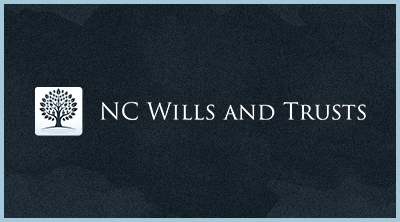As a North Carolina estate planning attorney, one of the most frequent questions I encounter revolves around what happens if someone passes away without a valid will. It’s a crucial question, and the answer often surprises people. The short version? The State of North Carolina decides for you.
When you die without a last will and testament, you're said to have died "intestate." In such cases, North Carolina law provides a very specific framework for how your assets will be distributed. This framework, known as the laws of "intestate succession," doesn't take into account your personal relationships, your wishes for specific heirs, or any unique family circumstances. Instead, it follows a strict formula, often referred to as NC intestate succession laws.
Here's a simplified look at how your assets might be divided under North Carolina's intestacy laws:
- If you have a spouse and no children or parents: Your spouse inherits 100% of your assets.
- If you have a spouse and one child: Your spouse inherits half of your real estate and the first $60,000 of your personal property, plus half of the remaining personal property. Your child inherits the other half of the real estate and the remaining personal property.
- If you have a spouse and two or more children: Your spouse inherits one-third of your real estate and the first $60,000 of your personal property, plus one-third of the remaining personal property. Your children inherit the rest, divided equally among them.
- If you have children but no spouse: Your children inherit everything, divided equally among them. If a child has passed away but has their own children (your grandchildren), those grandchildren would typically inherit their parent's share.
- If you have parents but no spouse or children: Your parents inherit everything.
- If you have siblings but no spouse, children, or parents: Your siblings inherit everything.
And so on. The law provides for distributions to more distant relatives if closer ones don't exist. If, by some rare chance, no living relatives can be found, your assets could ultimately go to the state. This complex process highlights why dying without a will in NC can lead to unintended consequences.
Why is this a problem? The Consequences of Dying Intestate in NC
The biggest issue with dying intestate is the loss of control. You lose the ability to:
- Choose your beneficiaries: You might want to leave specific items to specific people, or exclude certain individuals. NC inheritance laws don't allow for this personal customization.
- Appoint guardians for minor children: This is arguably one of the most critical aspects of a will for parents. Without a North Carolina will, a court will decide who raises your children, which may not align with your wishes for child guardianship.
- Name your executor: The person responsible for managing your estate will be appointed by the court, often leading to delays and potential conflicts in probate court.
- Minimize estate taxes or probate costs: While North Carolina doesn't have a state estate tax, a well-drafted estate plan in NC can still optimize the distribution of assets and potentially reduce administrative costs.
- Provide for blended families or unmarried partners: NC intestacy laws do not recognize unmarried partners, and they can create significant complications for blended families.
- Leave charitable gifts: Without a will, you cannot designate specific organizations or causes to receive a portion of your estate.
The Solution: Create a Comprehensive North Carolina Estate Plan
The good news is that avoiding intestacy is straightforward: create a comprehensive estate plan. For most individuals, this starts with a properly executed Last Will and Testament. However, a complete estate plan for North Carolina residents often includes more than just a will, such as:
- Powers of Attorney: Designating someone to make financial and healthcare decisions on your behalf if you become incapacitated.
- Living Will (Advance Directive for a Natural Death): Stating your wishes regarding end-of-life medical treatment.
- Trusts: These can be powerful tools for managing assets, avoiding probate, providing for beneficiaries with special needs, or achieving specific charitable goals. Our firm can help you explore options like a revocable living trust or other types of trusts in NC.
Don't leave your legacy to chance. Taking the time now to establish your estate plan can save your loved ones significant stress, time, and expense during an already difficult period. It ensures that your wishes are honored and that your assets are distributed exactly as you intend, ultimately providing peace of mind.
If you're in North Carolina and ready to discuss your estate planning needs, please don't hesitate to contact our office. As an experienced North Carolina attorney, I can help you navigate the process and create a plan tailored to your unique circumstances.

